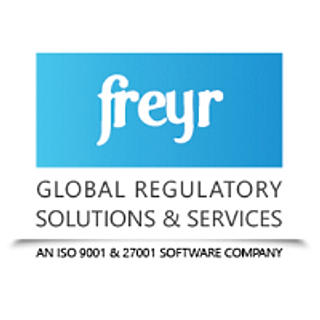Saudi Arabia’s Nutritional Labeling Regulations
- Freyr Global Regulatory Solutions
- Feb 21, 2025
- 4 min read
Saudi Arabia, in collaboration with various regional nations, has taken a significant stride toward enhancing food safety and public health with its proposal for a draft technical regulation concerning SFDA nutritional labeling requirements. This initiative, led by the Saudi Standards, Metrology, and Quality Organization (SASO), aims to regulate the nutritional information displayed on packaged food products, thus fostering better consumer awareness and safety regarding food consumption. Key Aspects of the Regulation Scope and Objectives: This draft regulation focuses on providing clear and accurate nutritional details concerning packaged food items. Its intent is to empower consumers with improved knowledge and awareness of health safety, fundamentally supporting the protection of human life through informed consumption choices. International Alignment: Inspired by global food labeling standards such as the Codex Standard No. CAC/GL 2:2017 and the EU Regulation No. 1169/2011, Saudi Arabia seeks to align its regulations with established international food labeling protocols. This alignment signifies the Kingdom’s commitment to safeguarding food safety in adherence to worldwide standards. Proposed Adoption Timeline: The anticipated timeline for the validation and enforcement of this regulation is set for one hundred eighty days (180) following the publication of the approved version. Stakeholders will have a 60-day period post-notification to provide their feedback, underlining the importance of public participation in the regulatory development. Stakeholder Engagement: Stakeholders are strongly encouraged to contribute their insights, which will be considered in the formulation of the final regulation. Interested parties can access the document through SASO and direct any comments or inquiries to the relevant agency, promoting transparency and collaborative engagement in the regulatory process. Implications for Consumers and Industry Enhanced Transparency: The introduction of clear SFDA nutritional labeling will empower consumers with the knowledge necessary to make informed choices regarding their food consumption, which is crucial for fostering healthier lifestyles. Accurate and accessible information will bolster transparency within the food sector. Improved Compliance: Establishing standardized labeling criteria for nutrition in Saudi Arabia reinforces operational protocols essential for maintaining consumer trust in food safety. Food manufacturers and suppliers are expected to adhere to these standards to enhance consumer awareness regarding food safety issues. Global Harmonization: Collaborative endeavors to align Saudi food safety standards with international best practices demonstrate a commitment to consumer welfare and promote trade opportunities. This globalization not only benefits domestic consumers but also elevates the country's credibility in various markets. Role of Local Representatives in Regulation Implementation Local Representatives are essential to the implementation of the draft technical regulation on nutritional labeling in Saudi Arabia. They facilitate cooperation among key stakeholders and regulatory bodies. Their primary responsibilities include: Collaboration with Key Stakeholders: Implementing the regulation involves working alongside the Saudi Food and Drug Authority (SFDA), as well as with public and private sector entities in the food industry. This collaboration ensures alignment with the objectives of the Healthy Food Strategy (HFS) and aids consumers in identifying unhealthy ingredients in food products. Reforms and Educational Campaigns: Local Representatives play a vital role in promoting nutritional reforms alongside educational outreach as part of the HFS. These initiatives aim to enhance lifestyles, reduce unhealthy food components, and elevate public awareness surrounding healthy diets. Their active participation improves market product quality. Compliance with Labeling Requirements: Local Representatives are responsible for ensuring both imported and locally produced pre-packaged food items adhere to SFDA labeling guidelines, which mandate clear nutritional disclosures, such as calories, carbohydrates, proteins, fats, and additional components impacting nutritional values and consumer health. Promoting Consumer Awareness: Local representatives are initiating efforts to heighten consumer awareness about nutritional information, including making calorie counts available on menus at hotels, restaurants, and cafes. Armed with this information, consumers are empowered to make healthier dietary choices that can counteract obesity and diabetes issues within Saudi Arabia. Implications for Food Manufacturers Non-compliance with the proposed technical regulation on nutritional labeling in Saudi Arabia presents significant challenges for food manufacturers in terms of food safety and regulatory adherence. Key implications include: Resource Constraints: Smaller manufacturers may find it difficult to allocate the necessary financial resources for training, equipment, and testing, thereby complicating compliance efforts. Complex Regulations: Navigating food safety regulations can be daunting for individuals without expertise in food science and the regulatory landscape. Regulatory Changes: Continuous investment in Research and Development (R&D) is required to adapt to frequently evolving regulations and ensure conformity. Communication Breakdowns: Ineffective communication may result in misunderstandings, increasing the likelihood of non-compliance between regulatory agencies and manufacturers. Supply Chain Management: Stringent quality control measures must be established to guarantee safe food supply, prevent contamination, and ensure compliance with all regulatory demands. Cultural Sensitivity: Cultural differences in food safety regulations, particularly in export markets, necessitate careful and expert guidance. Data Management: A comprehensive data management system is vital for maintaining compliance records and demonstrating strict adherence to safety regulations. Language Barrier: Operating in a non-native language environment necessitates overcoming communication barriers with regulatory agencies. Supply Chain Complexity: Ensuring compliance across intricate food supply chains fosters transparency, rigorous quality control, and effective communication with suppliers. Consequences of Non-compliance: Failure to comply with these regulations may result in loss of consumer trust, damage to reputation, and possible legal penalties. Therefore, it is crucial for manufacturers to prioritize regulatory compliance to guarantee product safety and sustain consumer confidence. In conclusion, adherence to the draft technical regulation on nutritional labeling is essential for food businesses in Saudi Arabia to ensure food safety, comply with regulations, and maintain consumer trust. Local representatives play a critical role in enforcing this regulation through collaboration with stakeholders, promoting reforms and educational initiatives, ensuring compliance with labeling requirements, and fostering consumer awareness around nutritional information to encourage healthier dietary habits. Engaging with Freyr’s regulatory expertise can facilitate navigation through these challenges and ensure compliance. With expert regulatory support, launching food and dietary supplements in the Saudi Arabian market can be achieved more efficiently and smoothly. Reach out to Freyr |











Comments